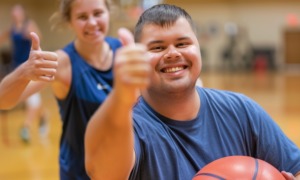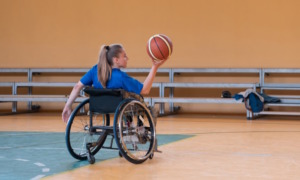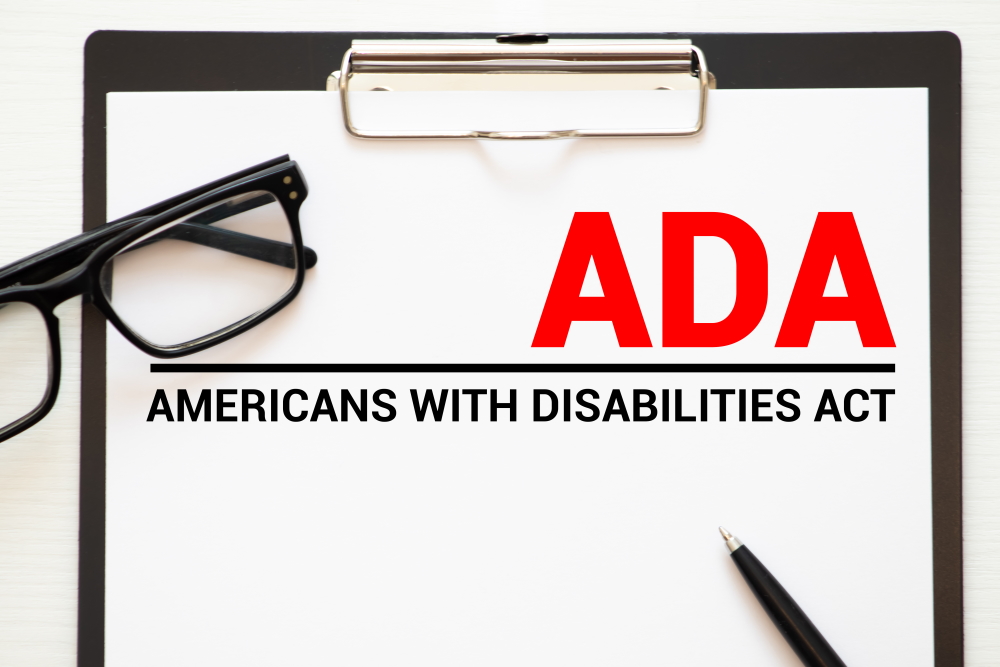 ZOLAK/SHUTTERSTOCK
ZOLAK/SHUTTERSTOCK
Sunday marks the 30-year anniversary of the passing of the Americans With Disabilities Act. The ADA is a piece of civil rights legislation that prohibits and makes illegal any form of discrimination to people with disabilities in public spaces. Now, with 30 years of regulations under its belt, I wanted to see how it has affected young people with disabilities in today’s world.
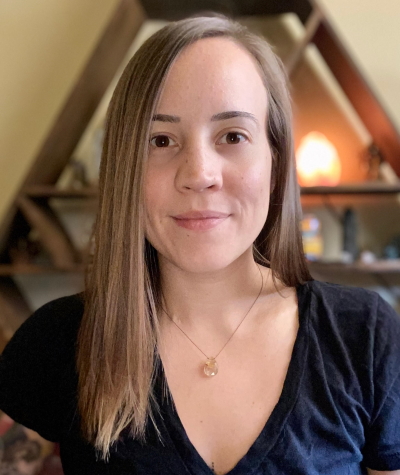
Ashlee McDougall
I spoke with Ashlee McDougall, who is 30 years old and lives in Tucson, Arizona. McDougall, who lives with cystic fibrosis, a hereditary disease that affects the lungs and digestive system, teaches yoga online. She thinks young people with disabilities may feel left out of the conversation about COVID-19.
“Honestly, I can’t imagine, because the isolation has been hard for me and I know how important community is for youth,” she said. “Speaking from experience, I’d assume they have been feeling a bit left behind because there hasn’t been much planning to keep the vulnerable safe.”
She discussed how the ADA has impacted her own life.
“While the ADA isn’t anywhere near perfect, it has allowed me some job safety and protection,” McDougall said. “It has also created a world that is more accessible for people with disabilities. I hope that the ADA creates stricter policies for employers and businesses, so the disabled community sees more opportunities in the next 30 years too!”
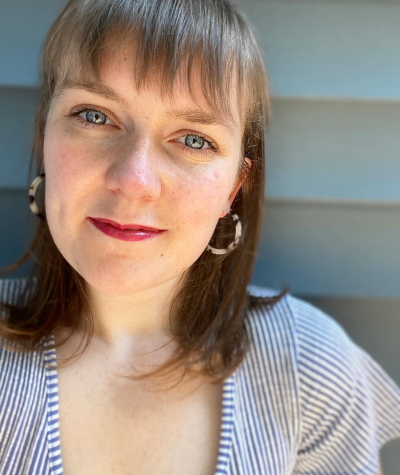
Meredith Aleigha Wells
Meredith Aleigha Wells, 25, is a nomadic artist who travels for gigs and is currently quarantining in Cleveland. Wells has postural orthostatic tachycardia syndrome, a form of dysautonomia, which affects circulation in the body. She works as an actor, singer and dancer.
Able-bodied people are only now seeing what it is like for people with disabilities who have to stay at home due to their illness, she said.
“It’s bittersweet really,” Wells said. “On one hand, I think it is amazing to see so many things becoming accessible to those who are housebound from illness or have other disabilities that require remote access to classes, events, etc. but, on the other hand, it is frustrating to see all the things that disabled folks were told weren’t possible virtually for years going virtual as soon as there is a need for it from able-bodied people. I think the rest of the world is getting a taste of what [those] house-ridden from illness and/or immunocompromised go through on a daily basis.”
With regards to how the ADA applies to her life, Wells paid homage to those who fought for equality. “I am eternally grateful to be born in the age of the ADA. From the Section 504 sit-in to the Capitol Crawl, I am forever indebted to all the disabled activists and allies that paved the way for the life I am able to live today,” she said.
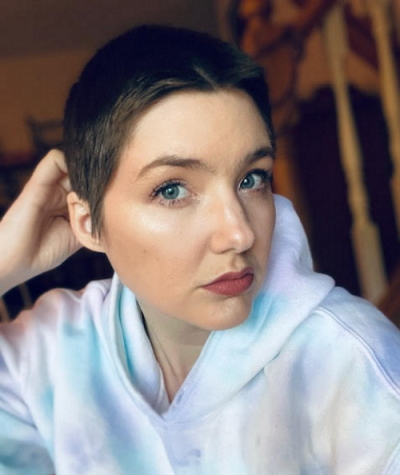
Chelsea Anne Lawrence
Chelsea Anne Lawrence is 31 and lives in Minneapolis. Lawrence lives with Ehlers-Danlos syndrome (which affects connective tissues), mast cell activation syndrome (when connective tissues are overactive and can cause shock), craniocervical instability, degenerative disc disease and functional neurological disorder. Before she became disabled, she worked as a full-time model and is now doing work in the fashion industry to make sure clothing is more accessible for people with disabilities.
“Personally, I lost my in-home therapies that were helping me on my journey to get better … due to COVID (and me being [immunocompromised]) I had to let go of my [personal care assistant], my speech therapist, my occupational therapist and my physical therapist,” she said. “Then my mom became my main caretaker. … she should be playing grandma, but she’s playing all those roles and more!”
Lawrence said the work people did to get the ADA passed inspires her: “I recently just learned about the [Capitol] Crawl! It moved me to my core. I hope one day to actually do that. I hope one day to wear [a] $1,000 suit and stand on the Capitol steps shoulder to shoulder with my disabled friends and chant for equal rights. I hope one day to change and make more laws for people like me! Yes, we have changed some things, but it’s a big world and there [is] a lot of change that needs to happen and I see that day as a stepping stone! I see it as INSPIRATION!”
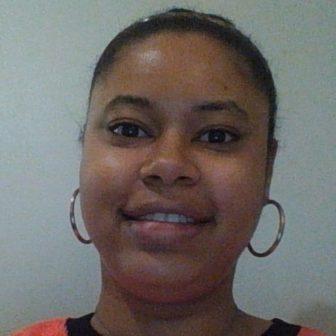
Deandra Mouzon
While we continue to battle COVID-19, let us not forget that many are still battling for their civil rights in this country. Legislation like the ADA played a major role in how citizens with disabilities are treated in their daily lives. Even today, young people with disabilities are still grateful for the help the ADA has provided and look to further its capacity for change.
Deandra Mouzon is a Georgia-based journalist who received a B.A. in journalism from CUNY’s York College. Currently she is working on a publication about youth with disabilities.




